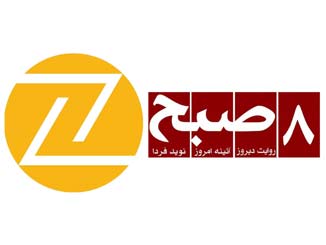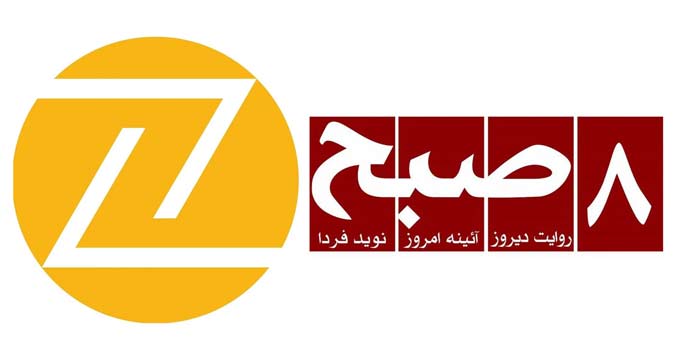

The Taliban group suspended the Internet domain of Hasht-e Subh Daily and Zawia Media. In response to the suspension of the website domain of this newspaper by the Ministry of Communications and Information Technology under the control of the Taliban, Hasht-e Subh Daily called this action “Taliban’s disbelief in freedom of expression”. Zawia Media also describes this action against freedom of expression. Organizations supporting free media also want the Taliban to reconsider the suspension of the website domain of these two media.
On Sunday night, October, 2, The Ministry of Communications and Information Technology which is under the control of this group, suspended the website domain of Hasht-e Subh Daily and Zawia Media. Sources have confirmed to Hasht-e Subh Daily that the suspension of the website domain of this newspaper is a political decision, and was done on the orders of the Taliban.
Hasht-e Subh Daily described this action of the Taliban as the group’s disbelief in freedom of expression. The statement published by this newspaper on Monday, October 3, states: “The Taliban do not believe in freedom of expression and they consider it a danger to their sovereignty, they put pressure on the media to prevent them from reflecting the facts of the country without censorship. This group does not want the people and the international community to know about the illegal arrests, trials, tortures, and even assassinations of a large number of officers and security officials of the former government.”
The Hasht-e Subh Daily has called for the suspension of the website domain of this media, as the Taliban’s attempt to keep citizens away from the current facts in Afghanistan. In the statement published by this media, it was added: “Keeping the people of the country unaware of the events and incidents, and presenting a false image of what is happening in Afghanistan, to engineer public opinion inside and deceive the international community outside, is part of the strategy of this group related to the media and information.”
Zawia Media has also announced the closure of its website. On Monday, October 3, this news website criticized this action of the Taliban and described it as against the principles of freedom of expression. In the statement that is published by this online media, it is stated: “Zawia Media is committed to freedom of expression and as a neutral media, it always tries to raise the voice of the Afghan people from every corner of the country and reflect the ongoing oppression of the citizens.” This media has announced its efforts to continue informing its audience.
The Hasht-e Subh Daily has also assured its audience of continuing its activity and informing them about the situation in Afghanistan. The statement published by the Hasht-e Subh Daily states: “Fortunately, the contents of the newspaper were spared from the Taliban; Because the internet server of the newspaper is located outside the country and all its contents are available to the audience through the new domain (8am.media). Officials of this newspaper explain that due to the threats made by the Taliban to the employees of this media, some of the employees of the Hasht-e Subh Daily went abroad and some others continued to inform the citizens of the country secretly.
The statement published by the Hasht-e Subh Daily states: “These threats reached the point that in some provinces of Afghanistan, rewards were set by the Taliban officials for introducing and arresting the employees of this newspaper and those who were suspected of cooperation, even without having any evidence, were tortured. However, due to the danger to the lives of those people, the Hasht-e Subh Daily did not want this matter to be made public.
Officials of this newspaper consider supporting free and independent media as part of their moral and legal responsibilities to defend democracy, the rule of law, and human rights, and they ask the institutions that defend human rights and support freedom of expression not to allow the Taliban to impose more restrictions on information. Do not let them keep the current realities in Afghanistan away from the eyes of the citizens of Afghanistan.
The Hasht-e Subh Daily started its activities in May 2007 with a critical approach. This newspaper works in the areas of human rights, justice, the institutionalization of democracy, rule of law, and freedom of expression. This newspaper has published dozens of research reports in the last 16 years. Before the rule of the Taliban in Afghanistan, nearly four thousand copies of this newspaper were printed. In 2012, this newspaper received the “Press Freedom Award” from Reporters Without Borders. The printing activity of the Hasht-e Subh Daily was stopped when the Taliban regime came to power. Now the Hasht-e Subh Daily offers the structure of the printed version in the form of (PDF) to the readers.
The Taliban has suspended the website domain of the Hasht-e Subh Daily newspaper and Zawia Media, which has published hundreds of critical reports on the wrongdoings of Taliban leaders in one year of this group’s rule over Afghanistan.
The suspension of the website domain of the Hasht-e Subh Daily and Zawia Media has been met with the reaction of media-supporting institutions. Nai-Supporting Open Media in Afghanistan called this action of the Taliban a restriction on information and asks the Taliban to reconsider the suspension of the website domain of these two media agencies. On Monday, October 3, Nai published a newsletter and said: “According to the Law of Public Media, such behavior is considered a restriction and censorship on media broadcasting affairs.” This newsletter also states: “Nai Officially asks the caretaker government to reconsider the blocking of the website domains of the Hasht-e Subh Daily and Zawia Media.”
Afghanistan Journalists Center (AFJC) has also described the suspension of the website domain of the Hasht-e Subh Daily and Zawia Media as against the guidelines of the law of public media and a sign of the tightening of restrictions against free and critical media in the country. The officials of this center stated in a newsletter: “We ask the authorities of the Taliban to review this decision and provide the basis for receiving complaints from journalists or the media through the Media Complaints and Violations Investigation Commission.”
On the other hand, Amnesty International has written in a series of tweets: “The Taliban officials should immediately reactivate the website domain of the Hasht-e Subh Daily and investigate the ongoing intimidation of journalists.” This organization has created a petition with demands such as allowing journalists access to the protests, not suppressing journalists, and respecting freedom of expression, and asked people to sign it.
Despite this, the Taliban officials argue that they have suspended the website domain of the Hasht-e Subh Daily and Zawia Media because of their “propaganda” against this group. Inayatullah Alokozay, the spokesperson of the Ministry of Communications and Information Technology of the Taliban, said that these two media were making false accusations against their leaders and publishing unbalanced and false news and reports.
However, this is not the first attempt by the Taliban to restrict information in the country. The Taliban have already blocked dozens of local media outlets and fired their employees. They also control the content of media outlets active in Afghanistan.
The statistics of Reporters Without Borders show that with the establishment of the Taliban regime in Afghanistan, half of the country’s media stopped providing information and stopped their activities. In the report of this institution, it is stated that in July 2021, about 547 media outlets were active in Afghanistan, but one year after the Taliban rule over the country, 219 media outlets stopped their activities. This report was published about two months ago.
On the other hand, a new assessment by the Afghan Independent journalists Association shows that after the Taliban took control of the country, the activities of 318 media outlets were stopped and nearly 3,000 journalists lost their jobs, most of whom are women.

Leave a Reply